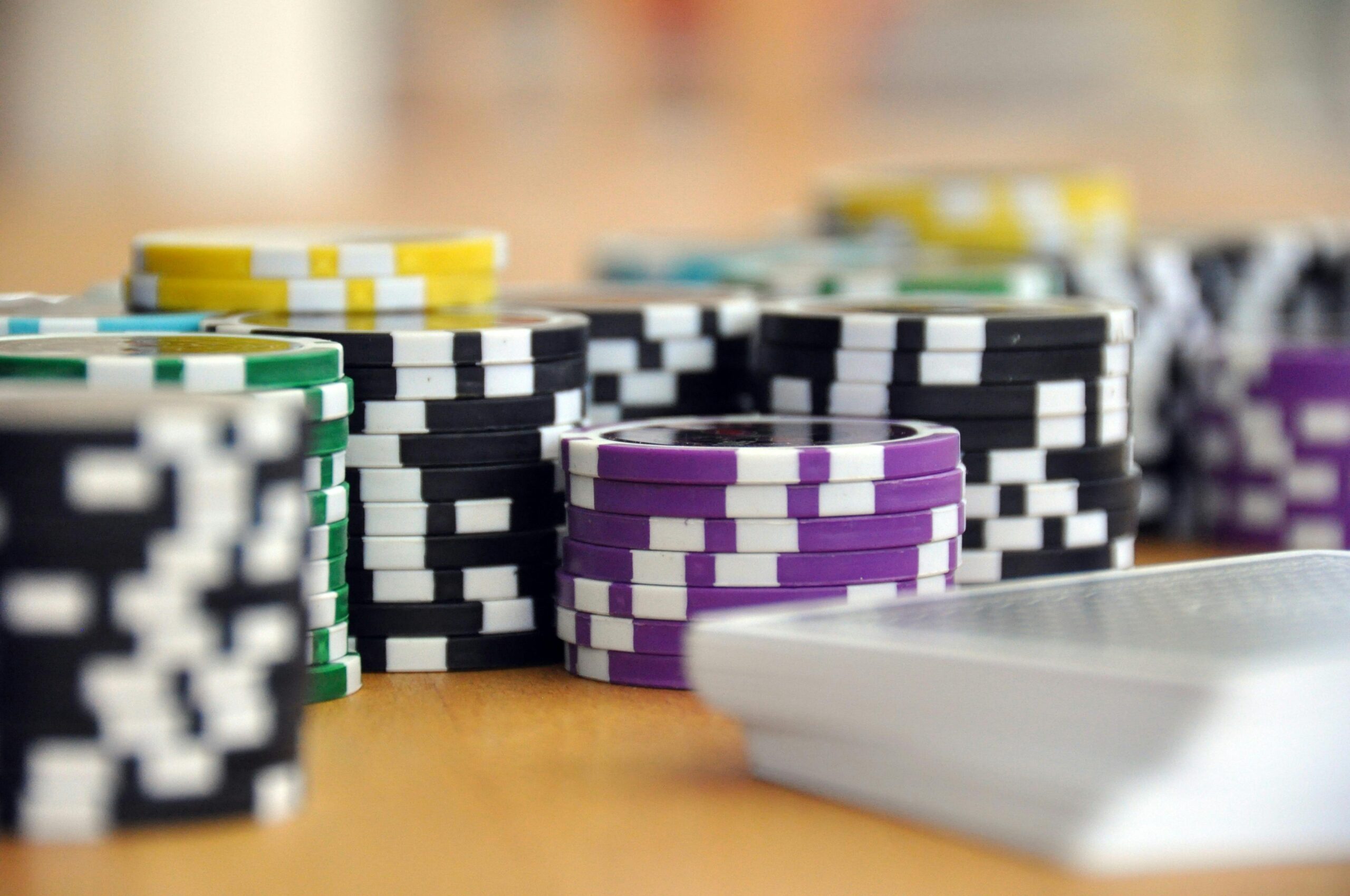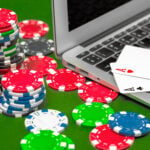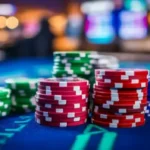How Online Poker Breathed New Life Into a Classic Game
wp:image {“id”:26573,”width”:”700px”,”sizeSlug”:”full”,”linkDestination”:”none”,”align”:”center”}

/wp:image
wp:paragraph
Poker used to be a dusty frontier game. You could smell the whiskey, hear the chairs scrape, feel the silence when the river card dropped. It thrived in smoke and sweat, in a man’s twitch or the way a woman stared down the table. That was poker’s old blood.
/wp:paragraph
wp:paragraph
Then the world changed. The cards slipped through copper wires, translated into code, and lit up on glowing screens. The saloon doors swung open to the internet.
/wp:paragraph
wp:paragraph
Suddenly, the game wasn’t in back rooms or neon-lit casinos. It was everywhere, in the hum of a desktop, in the glow of a dorm room at midnight. Poker was no longer a secret held by the few. It was a roar heard by millions.
/wp:paragraph
wp:paragraph
That shift wasn’t a whisper. It was a cannon shot. A game that lived by geography became global in an instant. You could sit down in a farmhouse kitchen and face a banker in London or a student in Seoul.
/wp:paragraph
wp:paragraph
The table stretched across continents. Chips became pixels, but the danger remained real. The digital age didn’t water down poker. It gave it scale, reach, and a new kind of mythology.
/wp:paragraph
wp:heading
The Language of Hands
/wp:heading
wp:paragraph
The core of the game never changed. It still hinged on poker hands. The pair, the straight, the flush, the royal. Five cards dictating fate. Online platforms turned that simple ladder into a language anyone could learn. They showed you the chart, highlighted your odds, whispered the math in every decision.
/wp:paragraph
wp:paragraph
For newcomers, the fear of being exposed as a fool at a live table vanished. They could learn in silence, far from the jeers of regulars and the smirk of a dealer.
/wp:paragraph
wp:paragraph
And people did learn. Millions. They memorized the rankings, felt the pull of probability, and discovered the pleasure of mastering a structure older than their grandparents. Poker stopped being a closed ritual. It became common speech, a grammar of risk and reward spoken in kitchens, offices, and cafes.
/wp:paragraph
wp:heading
The Spark and the Boom
/wp:heading
wp:paragraph
The first online games flickered to life in the late nineties, primitive but alive. Then came the pocket cam on television, showing the hole cards of professionals in live tournaments.
/wp:paragraph
wp:paragraph
Viewers could finally see what had always been hidden. The bluff was naked. The trap revealed. It was like pulling the curtain back on a magician’s trick. Suddenly poker wasn’t abstract chips moving on felt. It was war, strategy, deception in real time.
/wp:paragraph
wp:paragraph
The timing was perfect. The early 2000s lit the fuse. Millions logged in, testing luck, testing nerve. The so-called poker boom wasn’t a wave. It was a flood. College kids, factory workers, retirees — all of them chasing the same dream. Turn a small stake into a seat at the big table.
/wp:paragraph
wp:paragraph
Some pulled it off, and their stories spread like gospel. The idea that an amateur could topple giants turned poker into something close to legend.
/wp:paragraph
wp:heading
Tournaments Without Borders
/wp:heading
wp:paragraph
Online tournaments built a new coliseum. Thousands entered the same event, each starting even, all clawing toward a prize pool that grew monstrous.
/wp:paragraph
wp:paragraph
Just ask Chris Moneymaker (and yes, that’s his real name). This wasn’t Vegas. This wasn’t Monte Carlo. This was global. A kitchen table in Nebraska could turn into a battlefield worth millions.
/wp:paragraph
wp:paragraph
The sheer size sharpened the game. Players studied, dissected, argued. Forums became classrooms. Strategies hardened. People learned about expected value, about balancing ranges, about squeezing every ounce of equity from a hand.
/wp:paragraph
wp:paragraph
Poker became a science, a discipline carried on by a crowd that had never met in person. The collective mind of the internet forged a sharper, crueler edge to the game.
/wp:paragraph
wp:heading
A Political Dance
/wp:heading
wp:paragraph
Of course, the politicians came sniffing. They saw the money, the risk, the reach. They argued about whether poker was skill or just another spin of the wheel. Laws bent and broke, doors opened and slammed shut. Some governments embraced it, taxed it, tried to control it. Others outlawed it, fearing its spread.
/wp:paragraph
wp:paragraph
But the players didn’t stop. They rerouted, found new ways, slipped past borders. Poker had tasted global life, and there was no putting it back in the box.
/wp:paragraph
wp:paragraph
Politics could slow the march, but it couldn’t smother the hunger. The game was too human, too raw. People would always find a way to lay their chips down.
/wp:paragraph
wp:heading
The Soul of the Game
/wp:heading
wp:paragraph
Critics said the move online would drain the soul. No trembling hands, no beads of sweat, no nervous laugh before a bluff. But poker is bigger than body language. Online play found new tells in timing, in betting rhythms, in the cold numbers of statistics.
/wp:paragraph
wp:paragraph
It stripped the game down to bone and sinew. You couldn’t hide behind sunglasses or theatrics. All you had was your pattern, your nerve, your willingness to pull the trigger.
/wp:paragraph
wp:paragraph
And the old soul survived too. Online qualifiers sent nobodies into live arenas. Viewers watched small-town grinders walk into million-dollar halls and hold their own against legends. The game became a story of crossovers, of amateurs turned champions, of the internet birthing real-world heroes. The soul didn’t vanish. It evolved.
/wp:paragraph
wp:heading
What’s Next
/wp:heading
wp:paragraph
The wild boom has cooled, but poker stands on solid ground. Crypto payments and blockchain promise new ways to keep the game transparent, borderless, alive. The tools are new, but the cards remain the same.
/wp:paragraph
wp:paragraph
And still, the thrill endures. The pause before the river card lands. The snap call on a bluff. The rush when your hand holds.
/wp:paragraph
wp:paragraph
Online poker didn’t replace the old game. It breathed air into its lungs, widened its reach, and proved that poker is too stubborn, too thrilling, too human to fade. The cards keep shuffling, the chips keep stacking, and the game keeps rolling on.
/wp:paragraph





